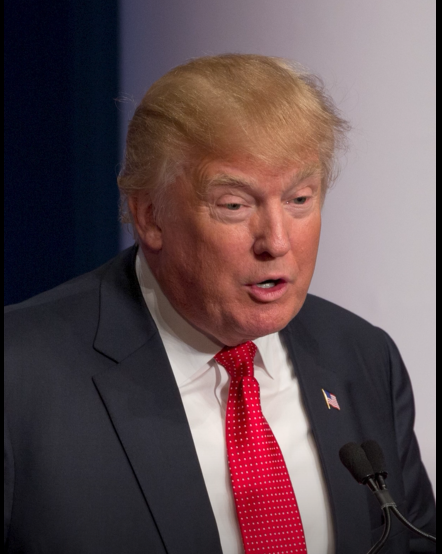It is expected that on Tuesday morning, Judge Juan Merchan will call the jury back into the courtroom for the closing arguments in the historic case of New York v. Trump. This is the first-ever criminal trial for former President Donald Trump, and it is being handled by the Manhattan District Attorney’s office. The last stage before the jury deliberates on a judgment will be the presentation of summaries by Trump’s defense team and Manhattan prosecutors to the jury.
Since the trial’s evidentiary phase concluded last Tuesday, the jury has been out of the courtroom for a week. The Memorial Day vacation and scheduling conflicts were the reasons for this break. Tuesday at 9:30 a.m. is when the jurors are supposed to return to hear the closing arguments, which should last the whole day. Judge Merchan has asked if jurors may remain late, implying that the summations might go into Wednesday.
Key Allegation: Trump Accused of Hiding $130,000 Payment to Stormy Daniels
District Attorney Alvin Bragg started the Manhattan case, and last Monday, Trump’s defense team attempted once more to have the case dismissed. They contended that there was insufficient evidence presented by the prosecution to connect the former president to the forgery of financial records.
The prosecution’s main goal is to demonstrate beyond a reasonable doubt that Trump fabricated documents in order to hide paying the adult film actress Stormy Daniels $130,000 shortly before the 2016 election. Allegedly, the money was given to keep Daniels from disclosing information about an alleged 2006 affair she had with Trump. Trump has steadfastly maintained his innocence throughout the trial.
According to Judge Merchan’s blueprint, the jury will be charged on Wednesday following the closing statements. This will entail providing them with precise instructions before to their deliberations. He calculated that it would take him an hour to give his instructions, at which point the jury would start deliberating. Trump must remain at the courthouse during this time in order to be accessible for any communications from the jury, including the reading of any notes that the jury may have.
Following the evidence of Michael Cohen, the prosecution’s main witness and former attorney for Trump, last Monday, the defense lawyers asked for dismissal. In order to conceal the payment from his wife, Cohen stated in his testimony that he personally used a home equity line of credit to pay Daniels $130,000. He stated that he took this action because Trump gave him the order to “handle it” in order to stop a negative story from appearing prior to the election. But Trump’s legal team maintained that he never gave Cohen the order to pay.
Cohen further stated in his testimony that he received $420,000 back for paying Daniels, claiming that Trump knew the specifics of the reimbursement and that Allen Weisselberg, the former CFO of the Trump Organization, had recommended inflating the payments. Cohen attested to receiving and depositing the eleven $420,000 cheques that the prosecution presented. These cheques bore the description of payments for a “retainer,” which Cohen said was untrue.
Todd Blanche, Trump’s defense lawyer, responded by demanding that the case be dismissed right away, claiming that there was no proof of fraudulent company filings or any indication that Trump intended to distort or hide any records. He underlined that no other offenses were being withheld and that neither the payment to Daniels nor Cohen and Weisselberg’s creation of the repayment arrangement took campaign finance allegations into account. Blanche contended that no witness had shown proof of Trump’s criminal intent and that Trump had paid Cohen a $35,000 “monthly retainer,” which was appropriately documented in the records.
In addition, Blanche questioned how an act like this could be considered illegal and questioned the prosecution’s reliance on the “catch and kill” tactic to stop a false report from a Trump Tower doorman from going public. Using Cohen’s testimony as support, he emphasized that there was no need to let the case go to a jury and brought up Cohen’s prior history of lying under oath, including during the present trial.
Judge Merchan Challenges Defense to Discredit Cohen Without Court’s Intervention
Blanche responded in the affirmative when Judge Merchan asked if she thought Cohen’s testimony should be completely thrown out because of credibility concerns. Merchan, however, retorted that Blanche ought to be able to convince the jury of Cohen’s purported lies without the assistance of the court if they were in fact unquestionable.
In response, the prosecution said that anyone who is responsible for the falsification of records may be prosecuted under New York’s fabricating business records legislation. Matthew Colangelo, the prosecutor, maintained that the defendant only needed to have started the chain of events that resulted in the deception.
Last Tuesday, outside the courthouse, Trump gave reporters a boost of confidence, saying that his defense team had “won” the case in its entirety and pleading with Judge Merchan to rule decisively against Bragg. Trump attacked the case, claiming that a different judge would have rejected it outright.
The nation’s attention is focused on this unprecedented legal struggle involving a former president as the trial draws to a close with closing arguments and jury deliberations.



Leave a Reply